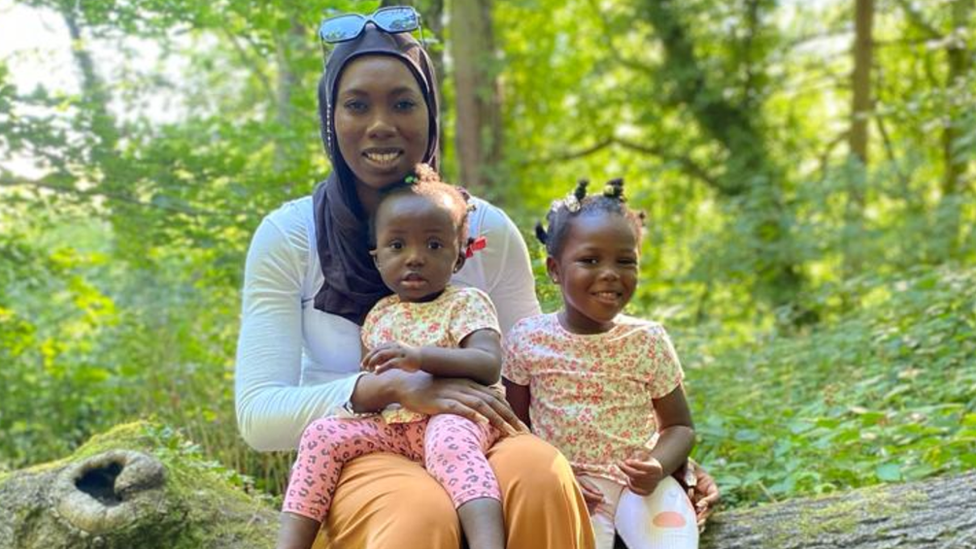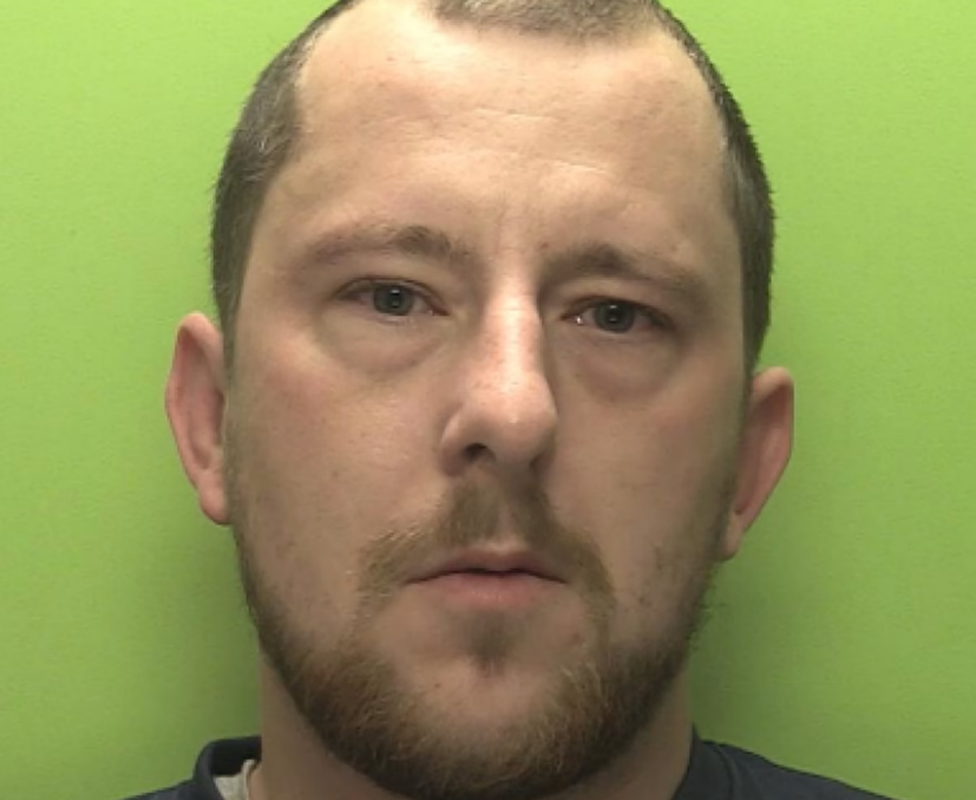Jamie Barrow: Man who murdered family has jail sentence reduced
- Published

Fatoumatta Hydara died two days after her daughters Naeemah Drammeh and Fatimah Drammeh
A man who killed a mother and her two daughters by setting fire to a flat has had his sentence reduced.
Fatoumatta Hydara, 28, died along with Fatimah and Naeemah Drammeh, aged three and one, when their home in Clifton, Nottingham, was set ablaze in 2022.
Neighbour Jamie Barrow was convicted of three counts of murder for deliberately starting the fire and sentenced to life with a minimum term of 44 years.
The Court of Appeal reduced it to 38 years on Tuesday.
Lord Justice Singh, Mr Justice Jay and Judge Mayo said the original sentence was "manifestly excessive in the circumstances of this case", but also expressed "sincere sympathy" for the family of the deceased.
"Nothing in this judgement should be taken in any way to detract from the gravity of the offences committed by this appellant," they said.

Barrow had admitted manslaughter but denied murder
The court heard Barrow had drunk "seven or eight" cans of lager before getting fuel from his motorbike and setting fire to his neighbours' flat in Fairisle Close.
While he said he believed the property was empty, his trial was told a pram in the hallway showed the family was at home, with prosecutors claiming he did nothing when he heard their screams.
Barrow was seen on CCTV walking away from the burning flat with his dog while smoking a cigarette, before returning to the scene and asking emergency services about the severity of the blaze.
When defending himself in court, he said he was "wallowing in self-pity" before starting the fire, citing his emotionally unstable personality disorder, and said he suffered "an immense amount of guilt" for causing the deaths.

Aboubacarr Drammeh was in the US when Barrow murdered his wife and daughters, aged three and one
After he was sentenced, the family of the deceased said Barrow's actions were "utterly heartless and cruel", and had "caused a multigenerational trauma that we will never understand".
Aboubacarr Drammeh - who had been working in the US at the time of the fire and was planning to bring his wife and daughters with him before their deaths - had called Barrow "a coward who knew exactly what he was doing and exactly when to do it".
In a written judgement, external, the Court of Appeal said the sentencing judge found Barrow had shown no remorse, "knew the deceased were all at home asleep", and watched the fire develop for five minutes before leaving without seeking help.
"It was an enormous length of time in the circumstances; in that time the smell of fire spread to nearby houses and smoke billowed from the property," the judgement said.
Jamie Barrow: Smiling killer who set fire to neighbours' home
Noting the defendant's longstanding mental health problems, the judges said Barrow "had difficulty managing his anger", and "had an interest in and considerable experience of fires", but found the trial decided his disorders "did not impair his ability to understand the nature and consequences of his actions".
However, Barrow's defence said the 44-year minimum sentence was "manifestly excessive" compared to other murder cases involving arson, adding not fully taking into account his mental health as a factor "was unreasonable and at fundamental odds with the evidence".
While finding the sentencing judge "was entitled to go well above the starting point" for sentencing, the Court of Appeal found there needed to be "consistency as between different cases", and reduced the minimum term accordingly.
"We stress that the minimum term is not the term that [Barrow] will in fact serve in prison," the judgement said.
"He will only be released if the Parole Board is satisfied that he is no longer a danger to society and, even if he is released, he will then be on licence for the rest of his life and may be recalled to prison if he breaches the conditions of any such licence."

Follow BBC Nottingham on Facebook, external, on X, external, or on Instagram, external. Send your story ideas to eastmidsnews@bbc.co.uk, external or via WhatsApp, external on 0808 100 2210.
Related topics
- Published7 July 2023

- Published4 July 2023

- Published21 June 2023

- Published12 June 2023
